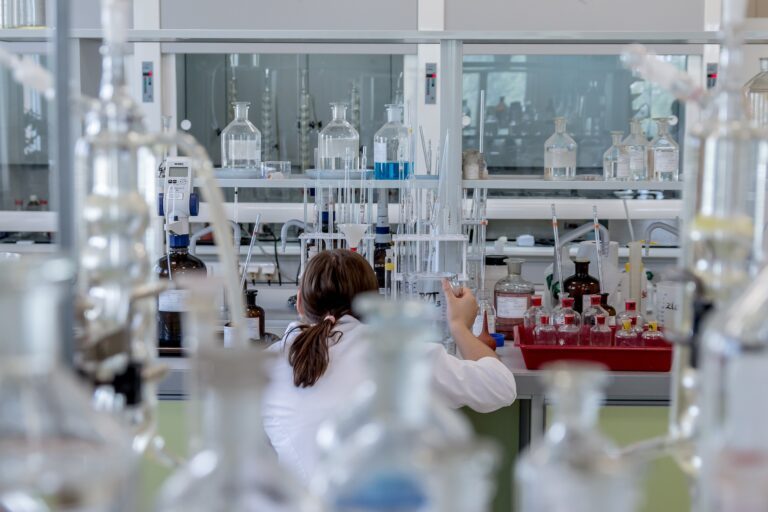A food Chemistry project Topic (Idea !)is an important aspect during graduation and further studies. So project ideas and topics based on food chemistry interest a Food technology student. Let’s think and plan from the very beginning of your academics.
As food technology graduation progresses, you will get a lot of project ideas. But FoodTechSafety would like to suggest some good food chemistry research and project topics.
Research Topics – Food Chemistry
1. Chemical Change in Oxidation of oils and fats
Here a food science student can choose rich oils and fats which are essential and significant to humans. Like omega 3, Linseed oil and red palm (commercially) oil, Fatty Fish Oil etc can be chosen for the food chemistry project topics. Most chemical properties of oil and fats have been researched and estimated so far. So it’s worth selecting indigenous and domestic oils and fat.
In this research, physical and chemical properties affected by heat, processing, and preservation can be evaluated.
2. Chemical properties of Food Color
Food colour is always a trending topic because it’s the prime attraction for consumers. Therefore its safety and permissive levels are significant in food processing.
A food technology student will be aware of types of colours ranging from natural to synthetic. For instance, Sunset Yellow Colour is added to major Foods such as confectionary and Beverages. I can be made to a project topic where you can research on the permissible levels to Humans or its disadvantages. Or you can try developing or extracting natural colours from different sources to enhance your research studies.
3. Effect of overheating on nutrients
As we know heat is a preservation method for food. However, its uncontrolled use can deteriorate the nutritional quality of food. So temperature is the major factor that affects processed and cooked food.
Therefore food science research topics can involve major foods, especially commercial significance, including chargrilled foods, ready-to-eat, and functional foods.
Read more: Which websites help you to do food science research?
4. Change in chemical properties of various nutrients.
Major research happens on the nutritional quality of food. Food science student has a major interest in the field of nutrient study.
5. Effect of water activity during processing
Water activity is the major factor that affects the microbiological quality of food. Therefore water activity measurement and their comparison can be in the study. Also, the ways to reduce and control water activity are a major research interest.
Water activity meter for food such as The Aqualab water activity meter is an analytical instrument to test the water activity. It provides reliable and precise measurements, making it an invaluable tool for food processors.
6. New Flavor development
Of course, food technology student has the new product development area of the most interest. So why not flavours!!
Study the volatile compounds responsible for aroma in different food products, their formation, and the factors influencing their presence.
You can develop new products incorporating food technology providing unique and differentiating taste and flavor ingredients that help create consumer products.
Go for innovative and organic flavours for the Food Industry.
7. Consumers influencing future trends
You can develop and create technology that increases shelf life and at the same time preserves its chemical properties. A food chemistry project involving food technology is an added advantage in career. Such projects showcase an individual’s ability to innovate and address real-world challenges, making them highly valuable to employers in the food industry.
8. Enzymes
Extract and analyze the most significant enzymes. Therefore a food science student can study effective enzymes which help the food sector. Commercial foods such as baking to breweries require enzymes for their production.
Enzymes synthesize nutrients that are beneficial to the human gut. Nutrient supplements are in high demand day by day and require the help of enzymes. Biochemistry and Food chemistry joins together to identify and synthesize enzymes.
So go ahead with your best and most innovative food science research topics beyond the above ideas !!!!
9. Food Allergen Management
Identification and management of allergens is a significant research topic in novel food processing. Labelling of allergens in the final product is an important step in ensuring food safety. A customer visiting a grocery or a supermarket looks out for allergen labelling in a food product.
As we know there are 8 major food allergens identified. Therefore a food chemist can assess and remove allergens. Also can study how to mitigate allergens in a particular food.
Examine how food processing alters allergenic proteins and their potential impact on allergenicity in susceptible individuals.
10. Analytical Techniques in Food Chemistry
Compare and evaluate different analytical methods (spectroscopy, chromatography, mass spectrometry) for assessing food composition, and quality control.
11. Functional Foods and Nutraceuticals
Research the development and evaluation of foods enriched with bioactive compounds or functional ingredients for health-promoting benefits.
Conclusion
These topics can serve as a starting point for graduate research in food chemistry. Depending on specific interests, resources, and available expertise, these topics can be narrowed down or combined to create a comprehensive and focused research study.
